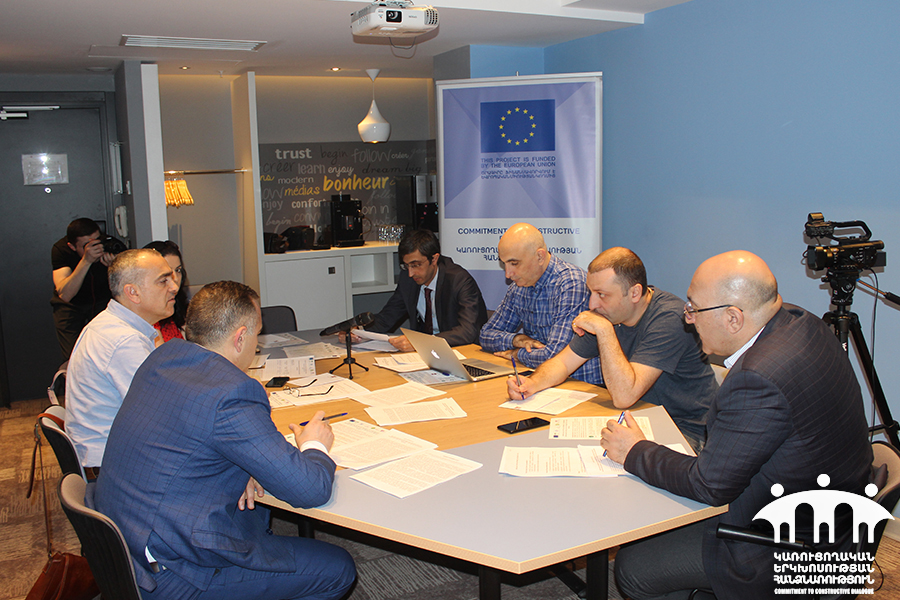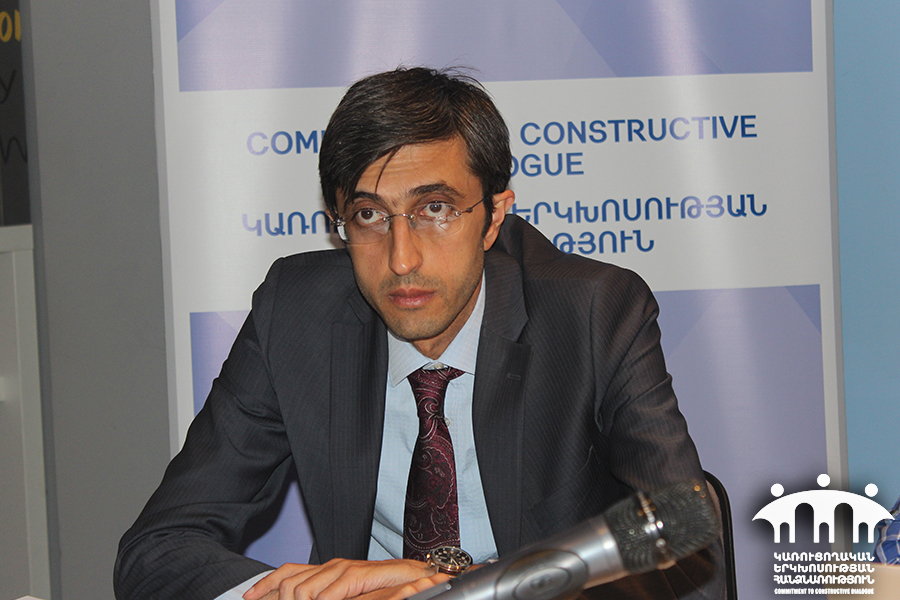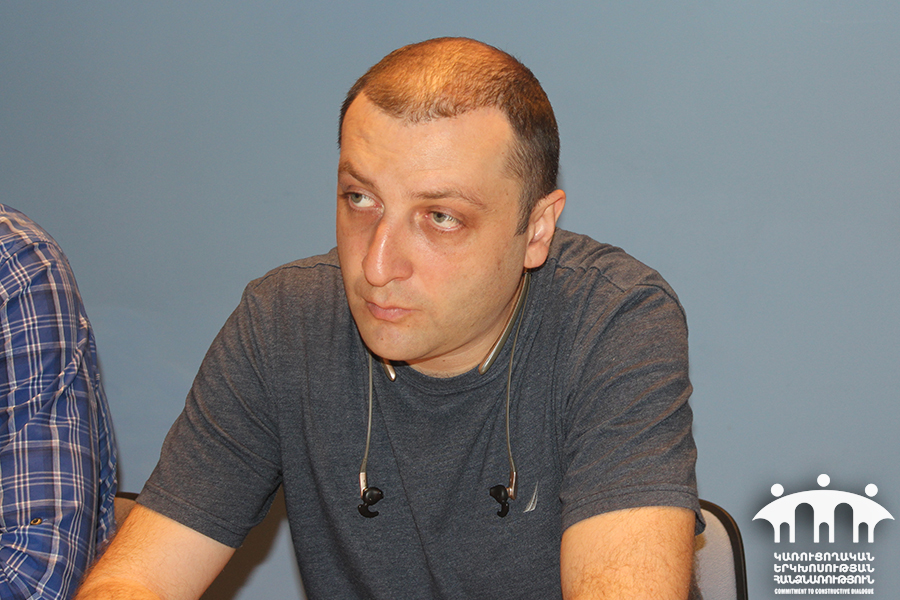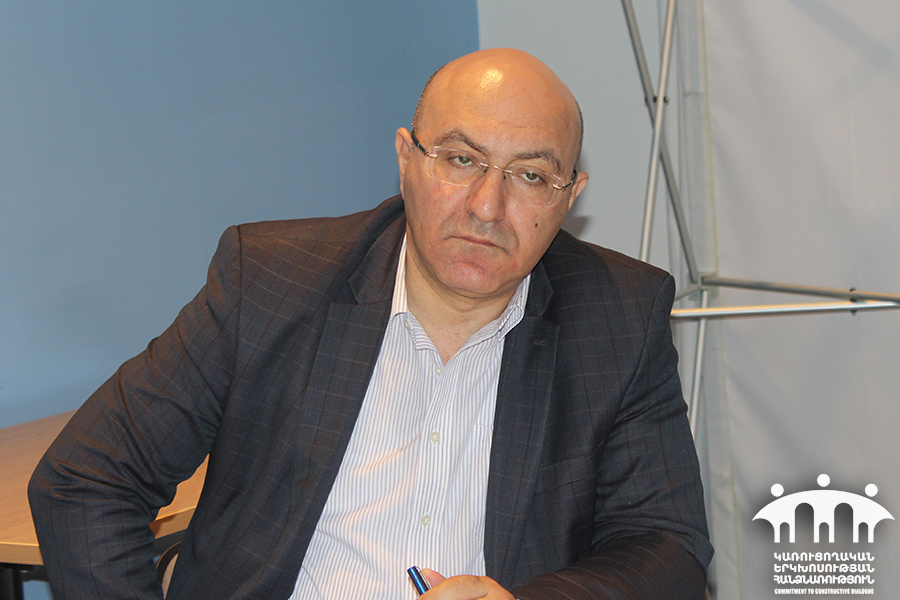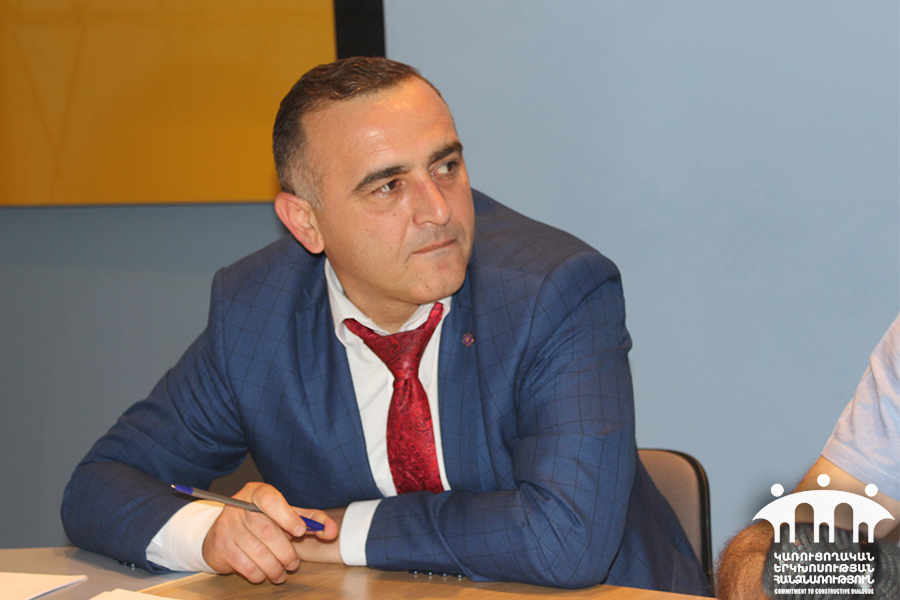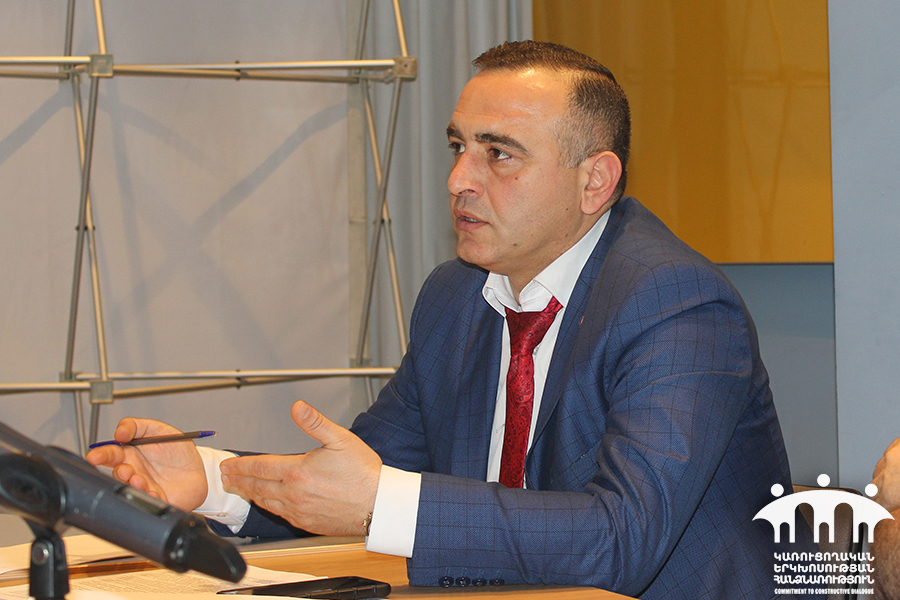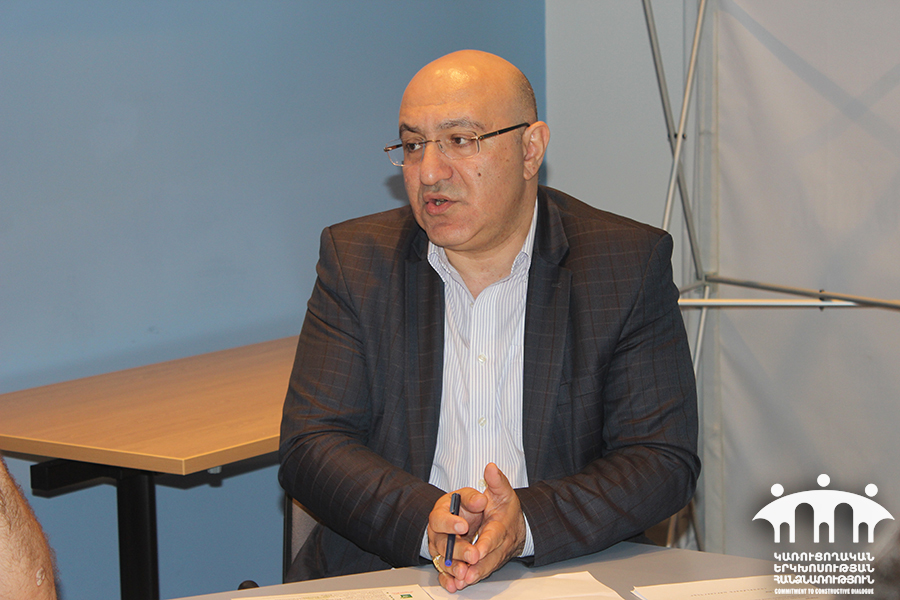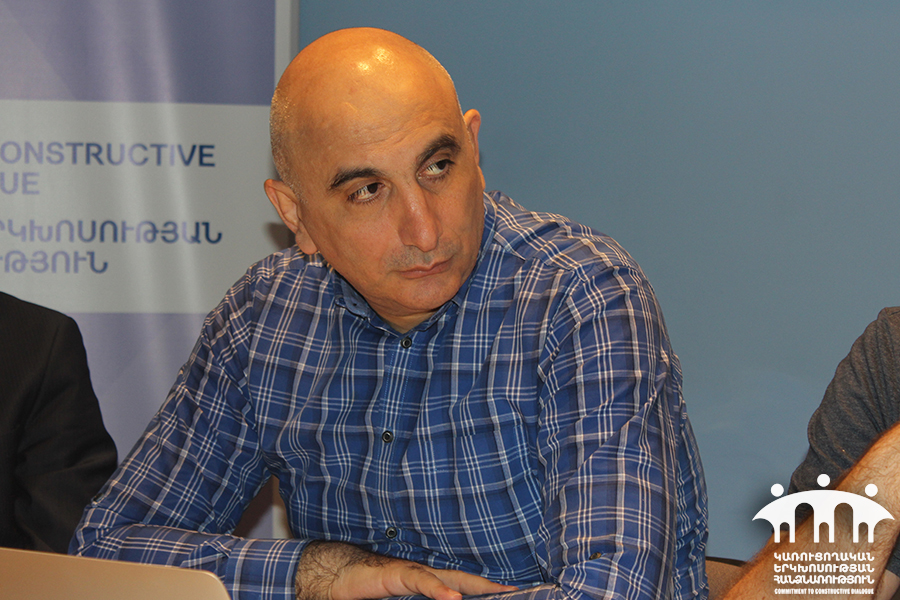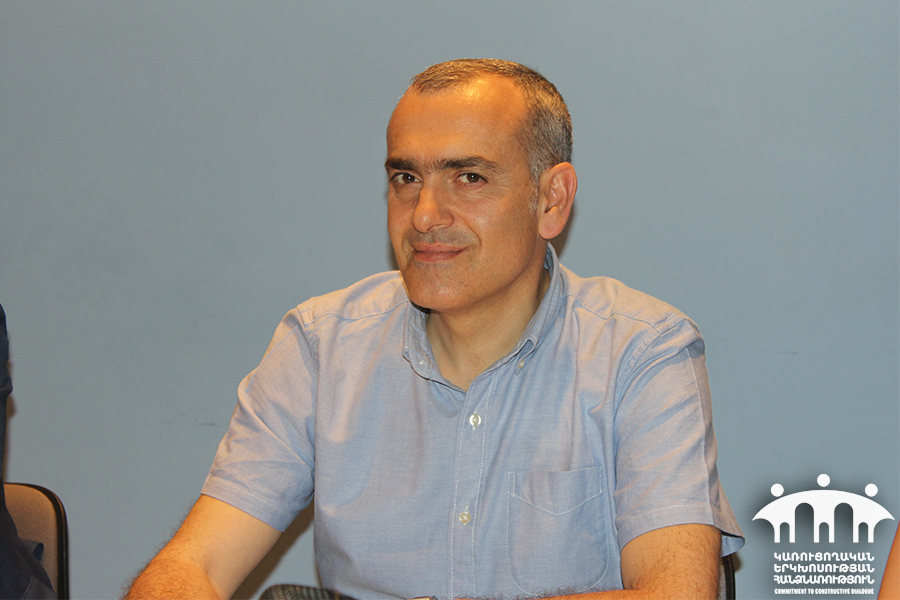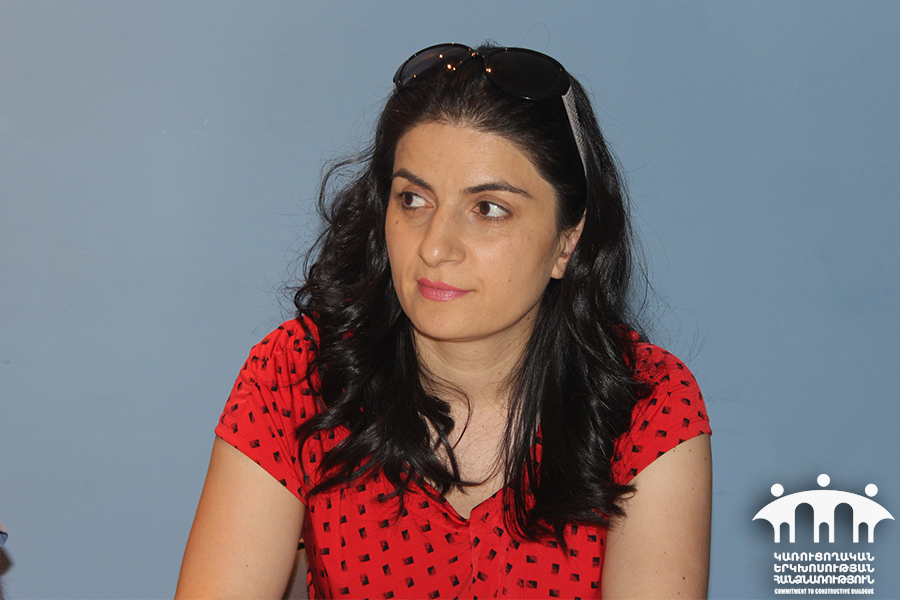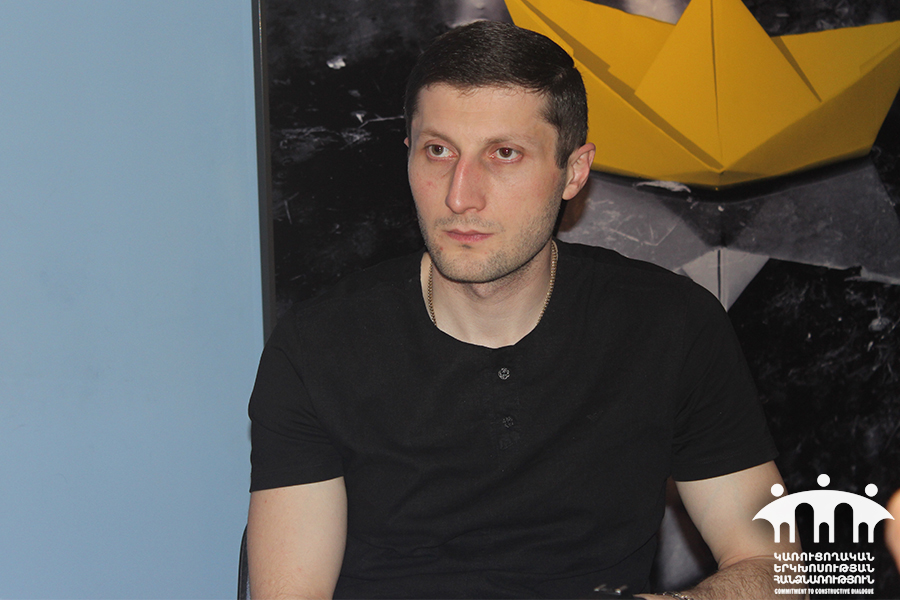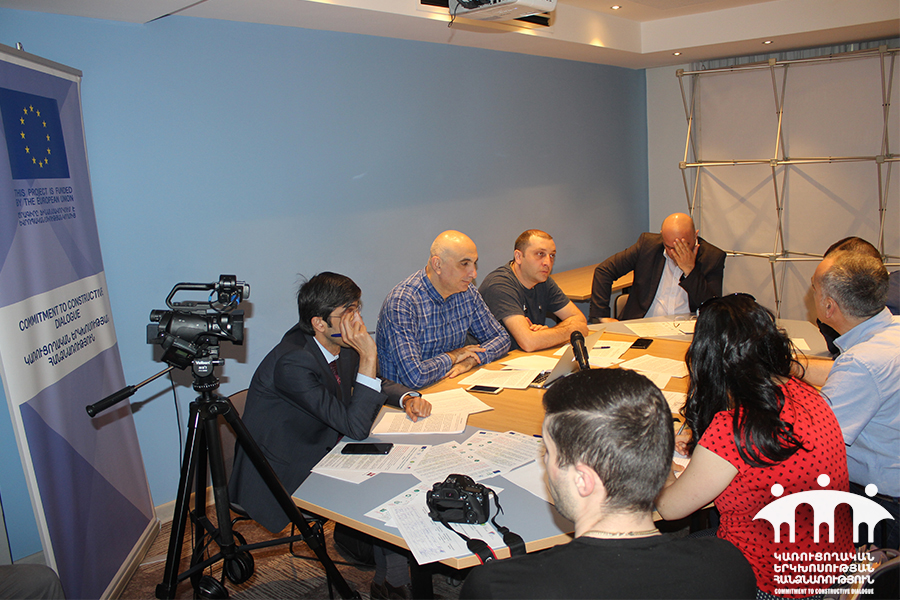On 14 May, the first meeting of the Working Group between the Armenian Educational Network and the Ministry of Education and Science of the Republic of Armenia was held within the framework of the EU-funded “Commitment to Constructive Dialogue” Project.
The meeting was organized by the Armenian Center for Democratic Education – SIVITAS NGO.
The objective of the establishment of the working group is to identify and clarify possible ways of development and ways to resolve existing problems through the establishment of constructive dialogue between state agencies and stakeholder organizations involved in the implementation of reforms in the vocational education and training (VET) and professional orientation sectors.
Mr. Artak Aghbalyan, the Head of Preliminary (craftsmanship) and Vocational Education Department of the Ministry of Education and Science of the Republic of Armenia; Mr. Aleksander Shagafyan, Head of the Inspection Body of the RA Ministry of Education and Science; Mr. Karen Zadoyan, President of the Armenian Lawyers’ Association, CCD Project Manager; Mr. Artashes Torozyan, Executive Director of Partnership and Teaching/P&T NGO; Mr. Khachik Gevorgyan, founder of ARMAKAD company representing CIVITAS organization; Mr. Aram Avagyan, Director of Global Development Fund and Ms Lilit Beglaryan expert of the Fund attended the meeting.
Heads of member organizations of the Armenian Educational Network (AEN) Artashes Torozyan and Aram Avagyan presented the package of proposals developed by the AEN for the solution of the issues raised during VET regional forums held in Armenia in September-October 2018, as well as the practical success and development prospects of community model of social partnership tested in the enlarged communities of Syunik Goris and Sisian.
“In order to make the network more efficient, it was necessary to form a working group with the Ministry of Education and to formulate the agenda and procedure of that working group,” Artashes Torozyan said.
According to Aram Avagyan, unlike other countries, the VET system in Armenia is centralized. He notes that there is a problem now that the community educational institutions should demonstrate independence; try to establish partnerships with different organizations and institutions.
Community activities should not repeat or substitute the functions of the Ministry or provide services provided by public service agencies, for example the employment service,” he said.
Mr. Artak Aghbalyan, the Head of Preliminary (craftsmanship) and Vocational Education Department of the Ministry of Education and Science of the Republic of Armenia, highlighted the need for involvement of all stakeholders on common goals and the support received from the public sector during the implementation of VET reforms.
“In VET sector, when the project is brought to the community level, the community tries to advance its priorities for its own development. For example, if there are 3 hotels in the community, they say there is a demand and lets work in this direction,” he said and added that when information is required from the regional administration, the Ministry of Education and Science is providing the same program that the community has presented and it turns out that the development of education does not stem from the strategic directions of regional development, which is developed by the regional administrations.
Mr. Karen Zadoyan, CCD Program Manger, highlighted the support provided by the European Union in the development of educational sector in Armenia, stated the development of the public sector-government inter-sectoral cooperation and the development of constructive partnership.
“The most important achievement within the framework of the program is the establishment of the Armenian Educational Network because it is an important part of the expertise of professional organizations that will serve for the Republic of Armenia after the completion of the project and if there is a constructive dialogue and co-operation with the Ministry of Education and Science, I believe it will give serious results, “he said.
According to Karen Zadoyan, a number of documents are now being adopted, but nothing changes in the life of the main beneficiary, and more and more institutions are being strengthened by the state-provided funds than the ultimate beneficiary, which is a serious problem.
At the end, an agreement on cooperation and organize meetings more frequently was reached.

